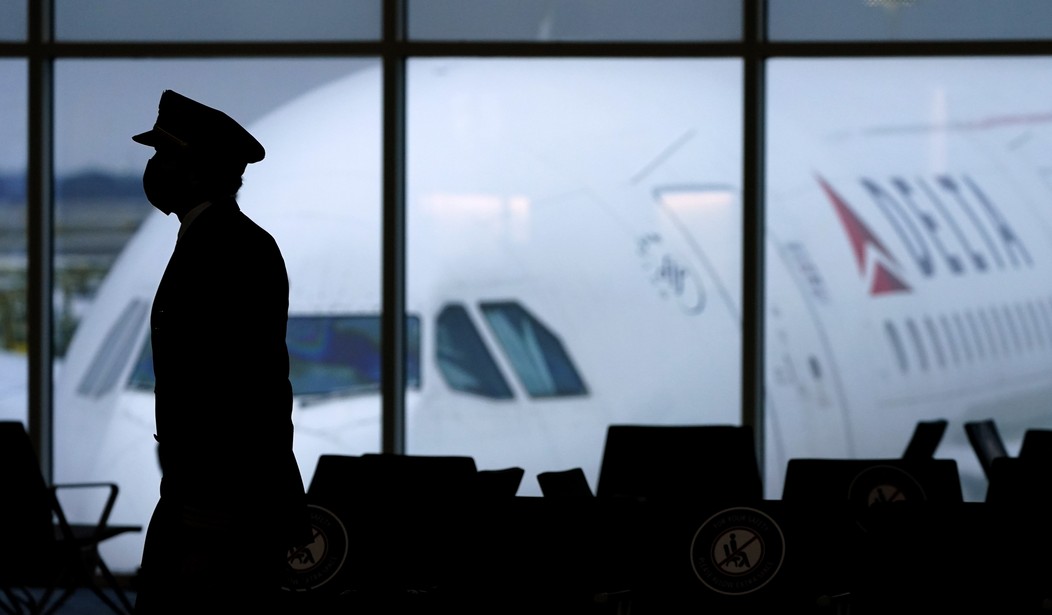American Airlines CEO Doug Parker and Southwest CEO Gary Kelly, along with United Airlines CEO Scott Kirby and Delta Air Lines Chief of Operations John Laughter testified in a three-hour hearing with the Senate Commerce, Science and Transportation Committee Wednesday. They were grilled about coronavirus mandates, labor shortages, and thousands of flight cancelations.
Two of the four airline executives testified that mask mandates are not an effective way to mitigate the coronavirus in air travel. The head of the airline attendants’ union disagreed and said now is not the time to drop the mask mandate. All American airlines are under mask mandates through the Transportation Security Administration’s mandate, which requires travelers to mask up on airplanes, trains, buses, and in airports and train stations. The mandate was recently extended through March 18, 2022. The extension is a part of Biden’s winter plan of action against the coronavirus.
The CEOs of two of America’s biggest airlines said on Wednesday they do not think masks should be required on planes any longer – even as new cases of the Omicron variant spread across the nation.
At a Senate hearing about the financial support airlines received in 2020 and 2021, Sen. Roger Wicker, the ranking Republican on the Senate committee, asked American Airlines CEO Doug Parker and Southwest CEO Gary Kelly their thoughts on the federal government’s mask mandate for flying.
‘I think the case is very strong that masks don’t add very much, if anything, in the air cabin environment,’ Kelly said. ‘It is very safe and very high quality compared to any other indoor setting.’
The two men point to the made reference to the new airflow systems installed during the pandemic with high-grade HEPA air filters. The filters capture almost all airborne contamination. The cabin air is often exchanged with fresh air from outside. Parker said, “An aircraft is the safest place you can be.”
Sara Nelson, the president of the Association of Flight Attendants, says the mask mandate allows passengers to feel more confident in flying during the pandemic.
Nelson also noted that not all airplanes are equipped with the same quality of air filters, and some of the older planes do not have the HEPA filters.
And while she said she thinks it should be up to the ‘medical community’ to decide whether masks are still needed on planes, she said she does not support ending it at this time.
‘I believe that the government has taken a very responsible approach to this,’ she said. ‘We believe it should continue to stay in place,’ calling it a ‘workplace safety issue.’
‘We do need a consistent message though,’ Nelson testified, adding: ‘I hope we are going to stay on the same messages and follow the medical experts, and do what’s necessary to keep everybody safe.’
Sen. Ed Markey (D-MA) called the testimony about masks “immoral”, especially with the emergence of the omicron variant. He doesn’t even want unvaccinated people flying on planes.
‘I’m shocked that some of the CEOs here today have suggested we no longer need mask mandates on planes,’ he said. ‘In the face of Omicron, children under five who still cannot be vaccinated… and that we still allow unvaccinated people on planes.’
Government assistance during the pandemic through the CARES Act kept airlines afloat and in exchange, they were required to keep employees on the payroll. The executives admit that the airline industry hasn’t bounced back as quickly as they hoped since people began flying again. Parker said that American Airlines has enough employees even though it has plans to hire 18,000 workers next year. American hired 16,000 workers this year and is still 10,000 workers short of how many it had before the pandemic. Parker noted it is difficult to find workers who are willing to work extra hours. Southwest’s Kelly agreed that it is a challenge “to make sure that we don’t over-schedule the airline relative to the people resources that we have.” Recent problems with flight cancellations have been blamed on the weather but also a shortage of crews have factored into the problems. Worker shortages go against the agreement airlines made to keep employees when they received $54B to cover payroll costs. Lawmakers noted that the aid package covered 77% of airlines’ payroll costs.








Join the conversation as a VIP Member